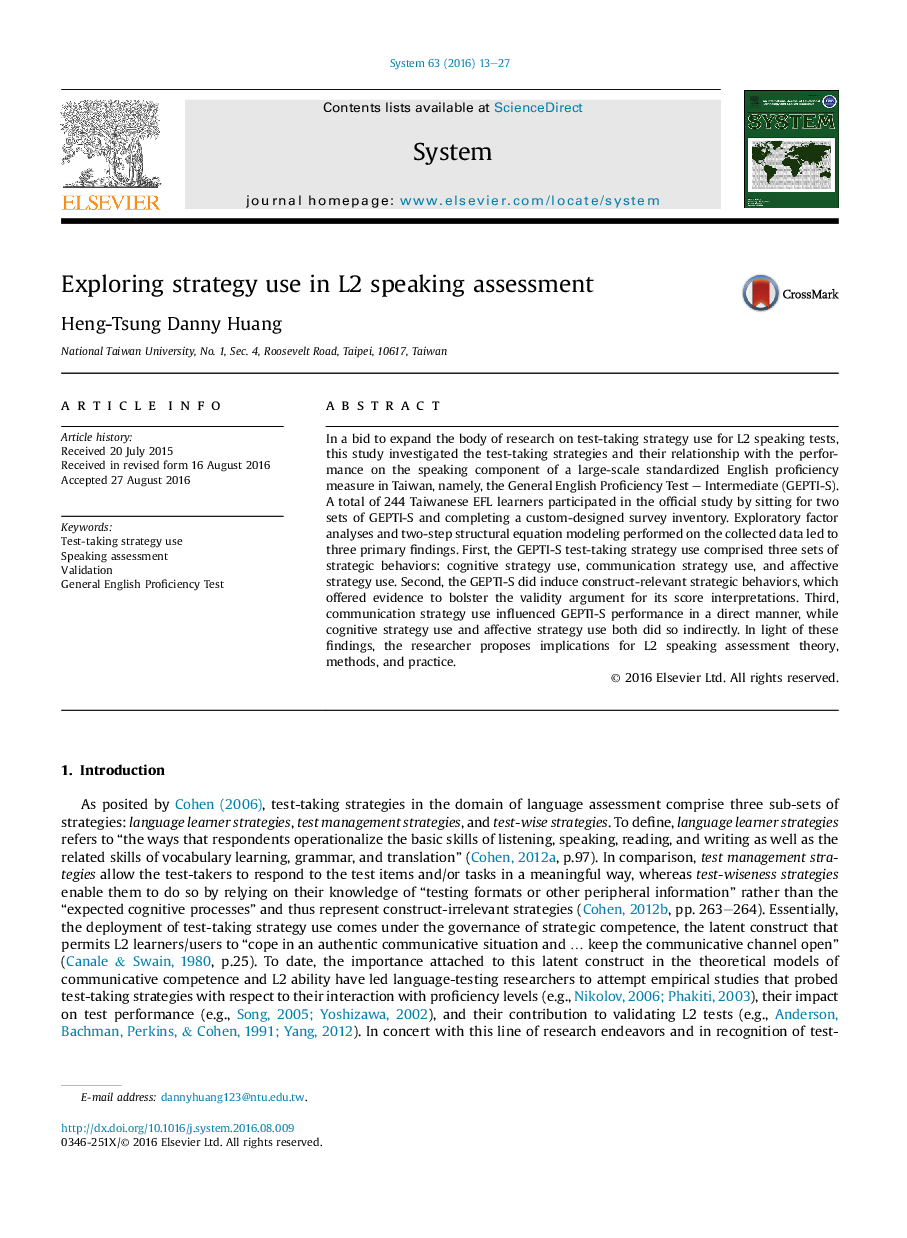| Article ID | Journal | Published Year | Pages | File Type |
|---|---|---|---|---|
| 4941456 | System | 2016 | 15 Pages |
Abstract
In a bid to expand the body of research on test-taking strategy use for L2 speaking tests, this study investigated the test-taking strategies and their relationship with the performance on the speaking component of a large-scale standardized English proficiency measure in Taiwan, namely, the General English Proficiency Test - Intermediate (GEPTI-S). A total of 244 Taiwanese EFL learners participated in the official study by sitting for two sets of GEPTI-S and completing a custom-designed survey inventory. Exploratory factor analyses and two-step structural equation modeling performed on the collected data led to three primary findings. First, the GEPTI-S test-taking strategy use comprised three sets of strategic behaviors: cognitive strategy use, communication strategy use, and affective strategy use. Second, the GEPTI-S did induce construct-relevant strategic behaviors, which offered evidence to bolster the validity argument for its score interpretations. Third, communication strategy use influenced GEPTI-S performance in a direct manner, while cognitive strategy use and affective strategy use both did so indirectly. In light of these findings, the researcher proposes implications for L2 speaking assessment theory, methods, and practice.
Keywords
Related Topics
Social Sciences and Humanities
Arts and Humanities
Language and Linguistics
Authors
Heng-Tsung Danny Huang,
